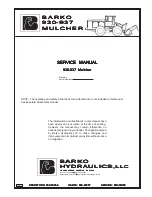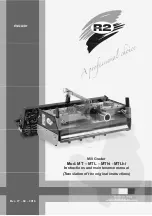
7
Optimizing Your Method
Finding the Best Way to Make an Injection
86
ISQ User Guide
Thermo Scientific
Finding the Best Way to Make an Injection
Adjusting the way you get the sample from the needle into the column can sometimes
improve the results of your data. Try modifying the autosampler method, injecting a different
amount of liquid, adjusting the injector port temperature or flow, or changing the speed of
your injection. You can also try using a hot or cold needle injection. In some cases adjusting
your injection port liners may give you better results. (For detailed instructions, see the user
guide for your autosampler.)
Improving the Way You Prepare Samples
Although sample preparation adds time and expense to the overall analysis, a more focused
method can give you better results. Try extracting your sample in a solvent that increases the
solubility of the analytes of interest, but does not increase the solubility of the other
compounds. Try switching solvents if your method will allow it.
You can also use or change the phase of a solid phase extraction cartridge, which gives you
similar results as changing a solvent. You can affect the way you prepare samples by changing
the type of cartridge you are using.
Changing the Scan Rate
The precision of your data depends on how well you define your chromatographic peak.
Typically, you get good precision when sampling ten times across the chromatographic peak.
Increasing the scan rate increases the number of times you’ve sampled across the peak.
However, increasing the scan rate too much results in mass spectral noise, which decreases
your analytical precision. To optimize your scan rate, select a rate that will give you 8-12
points across a chromatographic peak.
Narrowing the Mass Range
By narrowing your mass range, you can look directly at the compounds of interest. However,
if you’re looking at a large number of compounds that have a broad range of mass fragments,
a wide mass range makes sense. To narrow the mass range, refine your scan parameters to a
smaller number. A narrower mass range will also allow you to decrease the scan rate and get
the same chromatographic peak sampling. Breaking your MS method into groups allows you
to create compound-specific MS settings to optimize your data.
Summary of Contents for ISQ
Page 1: ...ISQ User Guide 1R120555 0003 Revision D January 2013 ...
Page 22: ......
Page 54: ......
Page 82: ...4 Creating a Method Creating a Method for the GC 60 ISQ User Guide Thermo Scientific ...
Page 124: ......
Page 148: ......
Page 152: ......















































